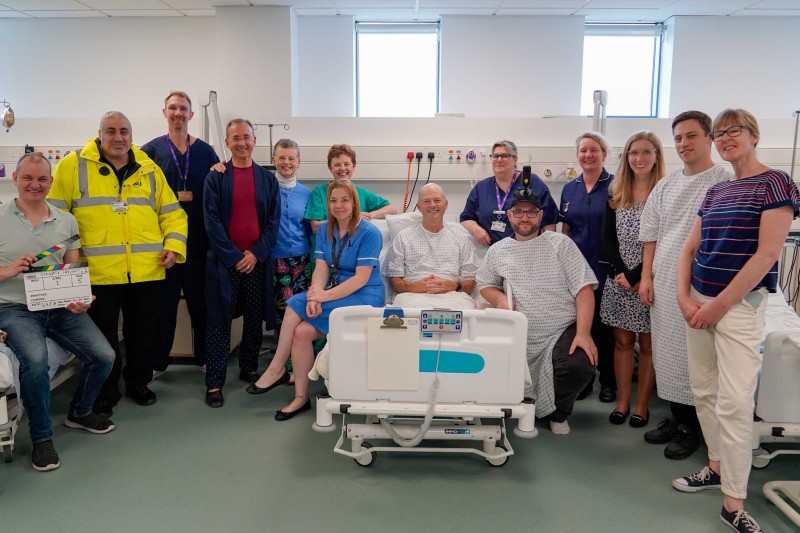Considerable efforts have gone into developing virtual reality for use in healthcare education. With over 55 million people living with dementia worldwide, estimated to rise to 139 million by 2050 (WHO, 2022), there remain worldwide concerns around awareness of how to care for those with dementia and their symptoms.
New technologies, including virtual reality (VR), are being increasingly used in training healthcare professionals. However, both simulations of clinical settings and also male viewpoints are currently underrepresented.
Developing on previous work, this project has developed a 360-degree VR simulation of a clinical setting, informed by conversations with people diagnosed with dementia and their carers.
The video portrays what it might feel like to be in an unfamiliar hospital environment using scripted monologue and a first-person viewpoint of a male living with dementia going into hospital.
The script was informed by conversations with people living with dementia and carers, developed around their reported lived experience of being in hospital. By using a virtual world to put the viewer in the shoes of the person with lived experience, the film has been created as an educational tool for viewers to gain a deeper understanding or awareness of what patients with dementia might experience being in hospital.
Evaluating the effectiveness of VR as an educational tool
The research element of this study uses a qualitative focus group design with a pre-/post-design validated questionnaire to evaluate the VR video as an educational tool for healthcare students.
Early findings in the study have reported positive impacts on person-centred care and the learner's understanding of the lived experience of dementia by helping the viewer walk in the shoes of a person with dementia. This was also reported to influence the care they deliver.
In addition to the film, the team is also creating a workbook in collaboration with our nursing students, which we aim to distribute in wards across the UK. The workbook will be designed to encourage further reflection on the film, while also giving further information and signposting.
 The Insight Dementia filming team
The Insight Dementia filming team